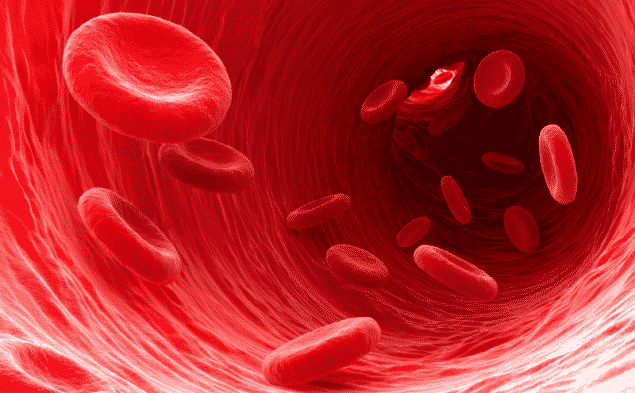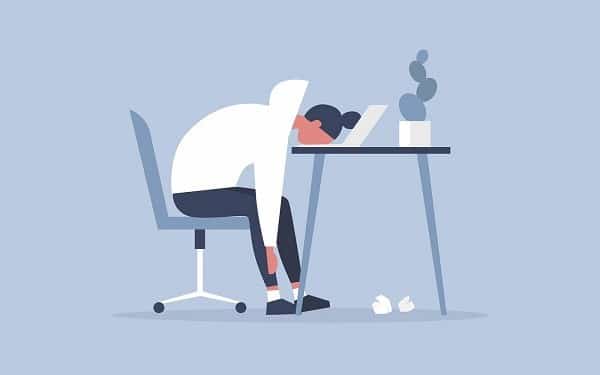What is Anaemia?
Anaemia is a deficiency in the number or quality of red blood cells circulating in your blood stream. Red blood cells contain a protein called haemoglobin, which is responsible for transporting oxygen molecules from the lungs around your body to all your organs and muscles. Anaemia can mean that either the red blood cell count is lower than normal, or the level of haemoglobin is lower than normal.
When a person has anaemia, the heart must work harder to pump more blood around the body to supply the required amount of oxygen to organs and muscles as there is a reduced oxygen-carrying capacity. This condition is common, particularly in females.
Symptoms
Depending in the severity of the condition, anaemia may present with the any of the following symptoms:
- Fatigue
- Tiring easily
- Weakness
- Breathlessness, even when performing tasks you could usually do easily
- Pale skin
- Fast heart rate or irregular heartbeat
- Frequent headaches
- Becoming irritated easily
- Concentration difficulties
- Loss of appetite
- Strange food cravings
Potential Causes
Anaemia can arise from many different causes, including:
- dietary deficiency – lack of iron, vitamin B12 or folic acid in the diet
- malabsorption – where the body is not able to properly absorb or use the nutrients in the diet, caused by conditions such as coeliac disease
- inherited disorders – such as thalassaemia or sickle cell disease
- autoimmune disorders – such as autoimmune haemolytic anaemia, where the immune cells attack the red blood cells and decrease their life span
- chronic diseases – such as diabetes, rheumatoid arthritis, and tuberculosis
- hormone disorders – such as hypothyroidism
- bone marrow disorders – such as cancer
- blood loss – due to trauma, surgery, peptic ulcer, heavy menstruation, cancer (in particular bowel cancer), or frequent blood donations
- drugs and medications – including alcohol, antibiotics, anti-inflammatory drugs, or anti-coagulant medications
- mechanical destruction –mechanical heart valves can damage red blood cells, reducing their lifespan
- infection – such as malaria and septicaemia, which reduce the life span of red blood cells
- periods of rapid growth or high energy requirements – such as puberty or pregnancy.
Groups at higher risk of developing Anaemia
Some people are at increased risk of anaemia, including:
- menstruating women
- pregnant and breastfeeding women
- babies, especially if premature
- children going through puberty
- people following a vegetarian or vegan diet
- people with cancer, stomach ulcers and some chronic diseases
- people on fad diets
- athletes
Diagnosis
Anaemia can be diagnosed several ways, depending on the causes. Your GP will take a medical history, including any chronic illnesses and regular medications. A physical examination may indicate signs and causes of anaemia. Suspected anaemia can be confirmed with a blood test including a complete blood count, iron studies, vitamin B-12, folate, and kidney function tests. Other tests include urine analysis to detect blood in the urine, gastroscopy or colonoscopy to look for signs of bleeding in the digestive tract, faecal occult blood test to look for blood in the stool and a bone marrow biopsy.
Treatment
Again, treatment depends on the cause and severity, but may include:
- vitamin and mineral supplements – if you have a deficiency
- iron injections – if you are very low on iron
- vitamin B12 (by injection) –for pernicious anaemia
- antibiotics – if infection is the cause of your anaemia
- altering the dose or regimen of regular medications – such as anti-inflammatory drugs, if necessary
- blood transfusions – if required
- oxygen therapy – if required
- surgery to prevent abnormal bleeding – such as heavy menstruation
- surgery to remove the spleen (splenectomy) – in cases of severe haemolytic anaemia.
Please note: Take iron supplements only when advised by your doctor. The human body isn’t very good at excreting iron and you could poison yourself if you take more than the recommended dose.
Some forms of anaemia cannot be prevented if they are caused by a disruption in the cell making process, such as bone marrow disease. However, anaemia caused by dietary deficiencies can be corrected and prevented with nutritional education including what food groups to include regularly in your diet, and with supplementation. People following a vegetarian or vegan diet may be at greater risk and should discuss with their GP about prevention strategies.
If you are feeling unusually tired, or are experiencing any of the symptoms listed above, book a free consult with us at Medsana Medical Clinic to discuss potential causes and treatments.
The information in this article has been adapted from:
The Australian Government Department of Health – Health Direct (2018), Anaemia, accessed 08 October 2020 <https://www.healthdirect.gov.au/anaemia>
Victoria State Government Better Health Channel (2019), Anaemia, accessed 08 October 2020 <https://www.betterhealth.vic.gov.au/health/conditionsandtreatments/anaemia#:~:text=Anaemia%20is%20a%20deficiency%20in,haemoglobin%20is%20lower%20than%20normal>
This article was written by April Stevens BSc. MD student.
8th October 2020.


